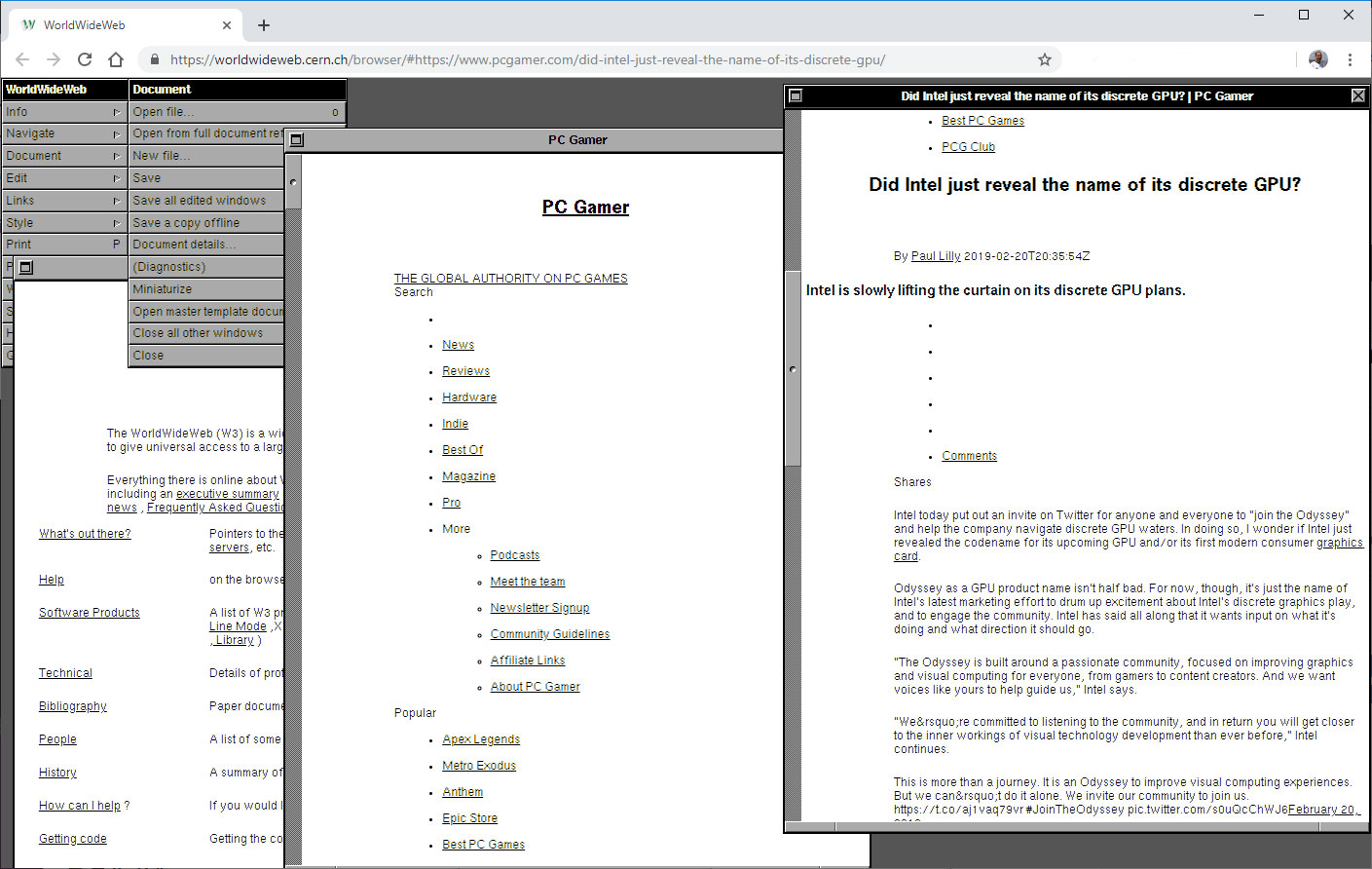Here’s what it was like to surf the web in 1990 on the very first browser
It wasn't pretty.

Chrome has its issues with memory management, sure, but spend a few minutes trying to navigate the web on the world's very first browser, which has been recreated by a team at CERN, and you'll see how far we've come in three decades.
CERN decided to take a nostalgic trip back in time to celebrate the upcoming 30th anniversary of Tim Berner-Lee's proposal that gave way to the world wide web. He wrote the proposal and 1989, and then built the first browser in 1990 on a NeXT machine.
Berners-Lee hadn't necessarily envisioned what the web would become, but he did recognize a need for an easier way to keep track of information, particularly as people at CERN came and went.
"Many of the discussions of the future at CERN and the LHC era end with the question, 'Yes, but how will we ever keep track of such a large project'? This proposal provides an answer to such questions. Firstly, it discusses the problem of information access at CERN. Then, it introduces the idea of linked information systems, and compares them with less flexible ways of finding information," Berners-Lee wrote in his proposal (PDF).
The world's first browser was obviously rudimentary by today's standards, and if you're curious about it—or just want to see webpages in their monochrome glory, without ads and tracking cookies and everything else—you can now give it a whirl.
As implemented, it's a browser within a browser, so you still need Chrome or Firefox, or whatever you use. Navigation is not straightforward, either—to visit a webpage, you have to navigate of a series of pull-down menus. Specifically, click on Document > Open from full document reference and then type in the full URL. Protip: double-click on links to navigate a page.
Shown at the top of this article is how PC Gamer in its modern form would have looked in 1990 on the first browser, had this site been around back then. It's not totally accurate, of course—this site would have been coded differently. Still, it's neat to see what today's webpages look like in a time machine.
The biggest gaming news, reviews and hardware deals
Keep up to date with the most important stories and the best deals, as picked by the PC Gamer team.
Thanks, ZDNet.
Paul has been playing PC games and raking his knuckles on computer hardware since the Commodore 64. He does not have any tattoos, but thinks it would be cool to get one that reads LOAD"*",8,1. In his off time, he rides motorcycles and wrestles alligators (only one of those is true).


